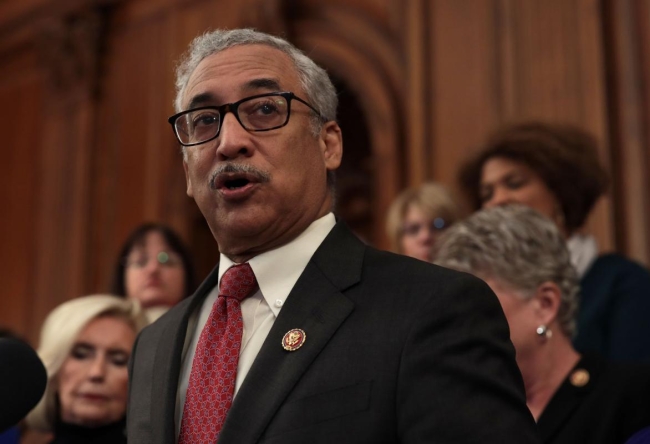You have /5 articles left.
Sign up for a free account or log in.

Representative Bobby Scott, chairman of the House education committee
Getty Images
Representative Bobby Scott, the House education committee chairman, suggested Tuesday in a letter to Education Secretary Betsy DeVos that her department had illegally awarded federal aid to two ineligible for-profit college programs operated by the defunct Dream Center.
Scott, a Virginia Democrat, also threatened to issue subpoenas if the Trump administration doesn’t cooperate with his committee’s ongoing investigation into the Education Department's handling of Dream Center Education Holdings, which went under earlier this year.
The education committee has for months pursued a slow-moving investigation into the collapse of Dream Center, which operated the Art Institute and Argosy University chains since 2017. In his letter Tuesday, Scott attributed the slow pace of the inquiry to stonewalling by the Education Department, which he said had released documents that are either unresponsive or heavily redacted.
“If the department continues to refuse to respond, the committee will then be forced to conclude that the department is purposefully frustrating Congressional oversight for reasons that are not in the best interest of the American tax-paying public,” he wrote. “Therefore, the committee is left to consider utilizing the full powers at Congress’ disposal to obtain these critical documents.”
Dream Center, a Los Angeles-based religious organization, purchased the college chains, including more than 100 campuses, from the for-profit Education Management Corporation with the intention of running them as nonprofit programs. The department determined in February that the programs failed to clear standards to change tax status and cut off federal aid, essentially ending their ability to continue operating.
The crux of Scott’s latest inquiry is whether the department scrutinized the nonprofit status of two Dream Center programs -- the Art Institute of Illinois and the Colorado Art Institute -- that continued receiving federal aid after they lost approval from their accreditor last year. The department can authorize Title IV funds for colleges that are candidates for accreditation, but not if they are for-profit institutions.
Scott said there was no evidence federal officials reviewed the corporate structure of the two programs, which the department eventually retroactively designated as nonprofits.
“Instead of conducting rigorous oversight of a complex and risky financial transaction, the department focused instead on papering over the liability of the two institutions’ executives, while these very executives were actively misleading their students,” Scott wrote.
A department spokeswoman disputed Scott’s suggestions that officials had acted inappropriately in the Dream Center case.
“It seems to us that the chairman is cherry-picking facts and lacking important context,” said Angela Morabito, the department spokeswoman. “The department maintains that it acted in the best interest of students and has continued to act in the best interest of students.”
Although the Higher Learning Commission, which accredited the Art Institute programs, pulled its approval in January 2018, Dream Center officials didn’t notify students about the change in accreditation status until months later. They continued to operate the colleges in the meantime, apparently under the impression that Trump administration officials would help resolve their accreditation challenges, according to internal Dream Center communications released by the education committee in July.
Documents attached to Scott’s letter show that department officials kept federal aid flowing to the Dream Center programs despite the lapse in accreditation.
In a May 3 letter to company officials, Michael Frola, the for-profit oversight director of the Office of Federal Aid, wrote that because the two Art Institute campuses had lost full accreditation through HLC months earlier, they no longer qualified for Title IV funds.
To prevent a lapse in eligibility for federal funds, and because there was a pending application from Dream Center to reclassify the colleges, he wrote that the department would grant them nonprofit status on an interim basis.
"Although the Art Institute has not provided approval of the change in ownership by HLC, the Department understands that the matter is proceeding in accordance with HLC's normal process," Frola wrote.
On Tuesday, five former Art Institute students represented by the Student Legal Defense Network sued DeVos and the Education Department, alleging that federal officials had illegally propped up the two-profit college programs. The lawsuit, filed in U.S. district court, asked that loans awarded to the students to attend those programs after January 2018 be canceled.
Between January and May of 2018, when federal officials notified executives about the eligibility concerns, Scott said $10.7 million in federal grants and loans was disbursed to the two campuses.
Antoinette Flores, an associate director for postsecondary education at the Center for American Progress, said the new documents released by Scott appeared to show that the department had improperly awarded federal funds, not just that there was alleged manipulation of accreditation.
“Rather than shut them down or pull funding, they just retroactively designated them as a nonprofit institution so they can gain eligibility,” she said. “It seems pretty serious.”




